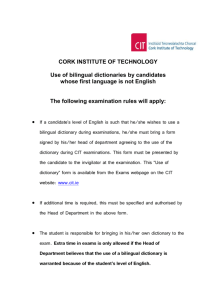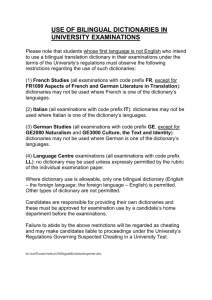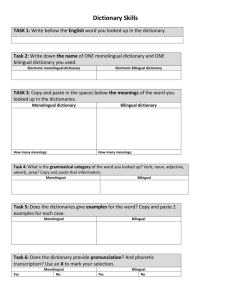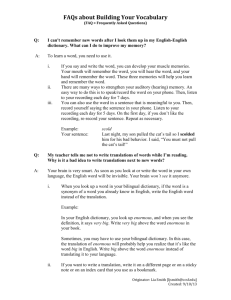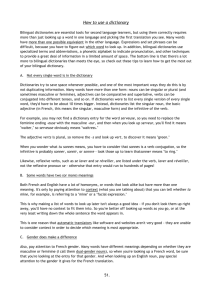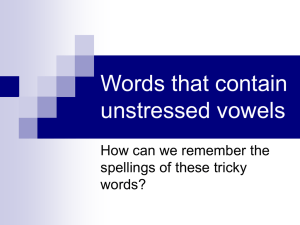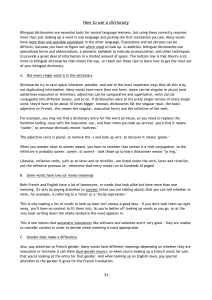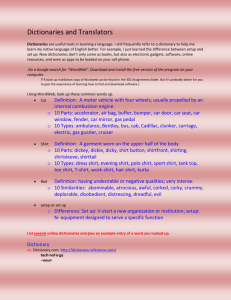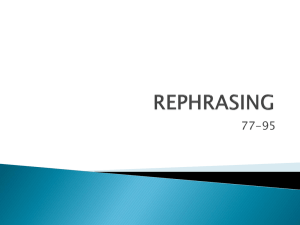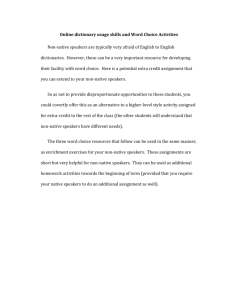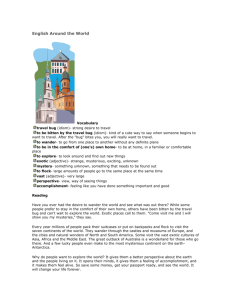Leaving Cert Language Exams: Curricular & Non-Curricular Guide
advertisement
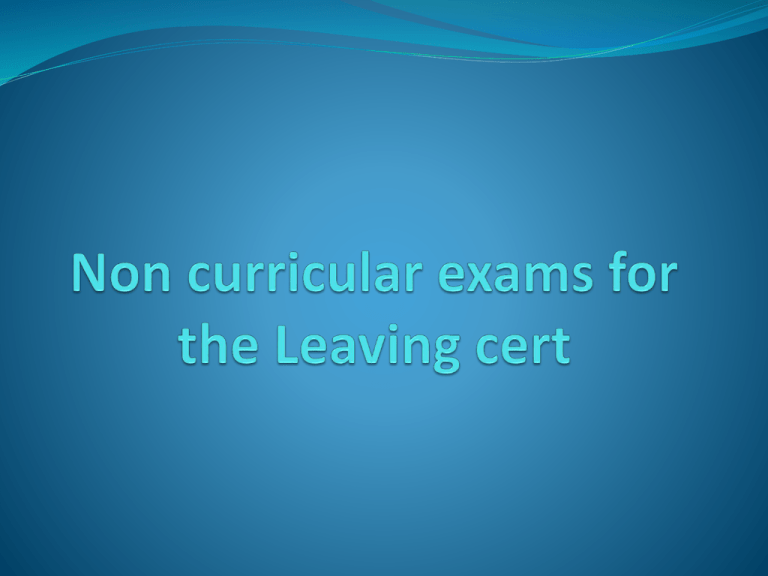
Curricular exams Irish, English, Ancient Greek, Arabic, French, German, Hebrew Studies, Italian, Japanese, Spanish and Russian. Non Curricular Exams Latvian, Lithuanian, Romanian, Modern Greek, Finnish, Polish, Estonian, Slovakian, Swedish, Czech, Bulgarian, Hungarian, Portuguese, Danish, and Dutch. Curricular Prepared in school by qualified teachers. Non curricular Prepared outside school. Anyone can prepare students for the exam. Course books are available for teachers to follow. No course books or materials. Past papers and marking schemes available online. www.examinations.ie Curricular Non curricular 2 levels: Hons and Pass. One common level for all. You can get 100 points for an A1. Not mother tongue. Must be mother tongue Listening and speaking Reading and writing only. No speaking or exams as well as listening. reading and writing The exam format The examination is a 3 hour written examination paper. It consists of 3 parts: Part I consists of a test of reading and understanding based on a passage of approximately 500 words. (30%) Part II is based on the passage in Part I. (30%) Part III is an essay (personal writing) on a choice of 2 topics. (40%) The rules: You must: Speak the language natively Be taking Leaving Certificate English Be taking only one non-curricular EU language Be from a member state of the European Union Have followed a programme of study leading to the Leaving Certificate Your school will register you for the exam. Inform the Examinations Secretary in early March if you wish to sit the Leaving Cert in your mother tongue. For 2013, Non-curricular languages will be examined on Wednesday 19th June 2013 from 9.30am to 12.30pm. If this day and time clashes with other exams your school can accommodate this. Use of bilingual translation dictionaries in the Leaving Cert If English is not your first language, you can use a bilingual translation dictionary in the Leaving cert. A bilingual translation dictionary is a dictionary which does not give explanations of terms or definitions. Very important: This may be a different type of dictionary to the one you usually use. You cannot use electronic bilingual dictionaries, translators, wordlists or glossaries. Subjects in which the use of dictionaries is not permitted For an exam which is your first language. Eg. A candidate whose first language is French cannot use a French dictionary in the French exam. English Irish A language closely related to your first language. You must supply your own dictionary. Remember to order it well in advance. www.internationalbooks.ie You must inform the school Examinations Secretary in early March that you want to use it in the Leaving Cert. the school has to fill in a form and ask for permission for you to use a bilingual translation dictionary. You must not have any notes written in the dictionary. The dictionaries will be inspected at the beginning of each exam.
